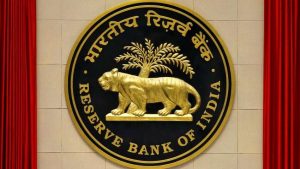RBI’s 2024-25 Report on State Finances:

The Reserve Bank of India’s (RBI) recent report, “State Finances: A Study of Budgets of 2024-25,” highlights significant improvements in the fiscal health of state governments post-pandemic, while also identifying areas requiring further attention.
- Gross Fiscal Deficit (GFD): States have successfully contained their consolidated GFD within 3% of GDP during 2022-23 and 2023-24, with a budgeted GFD of 3.2% for 2024-25.
- Revenue Deficit: Maintained at a low 0.2% of GDP during 2022-23 and 2023-24.
- Capital Expenditure: Increased from 2.4% of GDP in 2021-22 to 2.8% in 2023-24, with a further budgeted rise to 3.1% in 2024-25, indicating a focus on developmental spending.
- Outstanding Liabilities: Declined from 31% of GDP at end-March 2021 to 28.5% at end-March 2024, yet still above the pre-pandemic level of 25.3% at end-March 2019.
- Contingent Liabilities: State guarantees have risen from 2% of GDP at end-March 2017 to 3.8% by March 2023, posing potential fiscal risks.
- Rising Subsidies: Significant increases in spending on subsidies, including farm loan waivers and free or subsidized services like electricity, transport, and gas cylinders, have been noted. For instance, 14 states have implemented income transfer schemes for women, totaling approximately ₹2 lakh crore, or about 0.6% of GDP.
- Discom Losses: Power distribution companies have accumulated losses amounting to ₹6.5 lakh crore by 2022-23, equivalent to around 2.4% of GDP, despite multiple reform attempts.
- Debt Consolidation: The RBI emphasizes the need for a credible roadmap for debt consolidation, particularly for states with elevated debt levels, recommending clear, transparent, and time-bound strategies aligned with macroeconomic objectives.
- Expenditure Efficiency: States are urged to enhance expenditure efficiency through outcome-based budgeting and to rationalize subsidies to prevent the crowding out of productive expenditures.
- Fiscal Framework Reforms: Adoption of risk-based fiscal frameworks with provisions for counter-cyclical policies, along with strengthening State Finance Commissions, is advised to ensure fiscal discipline and adequate fund transfers to local bodies.




